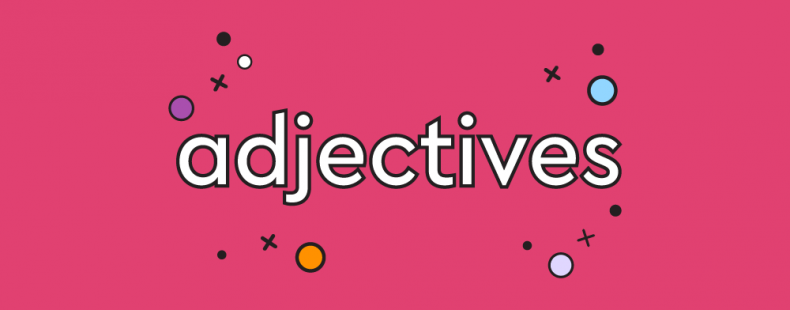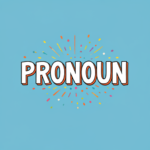Adjectives are words that describes or modify another person or thing in the sentence.

Degree of adjective
- Positive: It is used to describe the quality of noun.
Eg: He is a good boy.
2. Comparative Degree : It is used when there is a comparison between two nouns or pronouns.
Eg: He is better than you.
3. Superlative Degree : When noun is shown as a superior out of a club or group, class etc.
Superlative degree is used. Superlative degree is followed by ‘ the ‘.
Eg: He is the best student of class.
Comparative Degree
| Positive Degree | Comparative Degree | Superlative Degree |
| Good | better | Best |
| Intelligent | More intelligent | Most intelligent |
| Beautiful | More beautiful | Most beautiful |
Rule 1
1. There are some adjective which denotes absolute positions and of which comparative and
superlative degrees remains the some.
| Complete | idel | Inerior |
| Perfect | Major | Interior |
| Excellent | Minor | Exterior |
| Chief | Superior | Posterior |
| ulterior | Senior | Junior |

Rule 2
Their are some adjective which uses ‘to’ rather than ‘ than’ when used to compare.
These adjective has suffix – ‘ ior ‘
These adjective are:

Rule 3
If two adjective are separated by ‘ and ‘ , then they must be in some degree.

Use of ‘ very , ‘ more ‘ , ‘ much ‘
Very : It is used with positive degree of adjective .
More: Used with comparative degree of two.
Much: It is used with comparative degree.
Example:
1. He is good.
2. He is very good.
3. He is better than you.
4. He is much better than you.
5. He is comparatively smarter than you. [Correct : Smart ]
Conversion of Superlative degree to Comparative degree
There are two methods to change superlative degree to comparative degree
Methods
1. All + Other + Plural Noun
2. Any + Other + Singular Noun
Gold is more precious than any other metal.
Examples:
1. He is better than all other boy of the class. [Correct: boys ] [ Method 1 ]
2. He is better than any other boy of the class. [Method 2 ]
3. She was curious to know what it was that made him stronger and braver than any other
man of his village. [ Method 2 ]
4. The Ganga is the holiest of all other rivers of India.
[ ‘ other ‘ is never used with superlative degree ]
Synthesis
Synthesis is done between two special type of sentences which have

[ It is done by using conjuction ‘ If / but ]
Example : She is more beautiful but not so altered as her younger sister.
Ordering of Adjectives
Size→ shape → age→ color → nationality → noun
Example→Black American 20 year old Nigro is his best friend.
Correct → 20 year Black American Negro is his best friend.
Examples:
1. he wanted certain boy to make entry into the principal’s chamber. [Correct : boys]
certain → a) with ‘ certain ‘ noun used in plural form
b) ‘ a ‘ is used with certain
2. These sort of men attain worldly success by hook or by crook. [Correct : sorts ]
Examples:
‘These ‘ and ‘ Those ‘
The noun following ‘ these ‘ and ‘ those ‘ should be in plural form.
1. There were only two soldiers but each and every soldiers was equal to 5 policemen.
[Correct : soldier , ‘and each’ never be used ] here each is used as adjective.
2. Inspite of facing much problems he did not dessert the path of honesty. [Correct : Many]
‘much’ and ‘ many ‘
much is used with uncountable nouns. many is used with countable nouns.
1. Can you tell me how many eggs and how much milk he has brought home.
2. whole the chapter of the book is full of printing mistake.
‘All , Whole & Both ‘
‘ All ‘ and ‘ both ‘ are followed by definite article ‘ the ‘. ‘whole ‘ is proceeded by the definite
article ‘ the ‘ .
1. Her long black hair adds glamour to her looks. [size→ color ( Order of Adjectives ) ]
2. I saw an anxious pale girl. [emotion → color ( Order of Adjective ]
3. I saw a pale anxious girl.
4. I t is a fact that mahatma Gandhi was the 1st politician of his time. [Correct : famous ]
5. Delhi is farther from Patna than it is from Kolkata.
6. You can trust this agency for the last news of this week. [Correct : latest ]
7. He doesn’t have some money to buy a new car. [Correct : any ]
‘Some ‘ & ‘Any’
‘any’ is used with negative sentence and question
1. He felt happily to know that, his younger brother had got a prestigious job in the bank.
[ Correct: happy ]
Featured image courtesy: thesaurus



